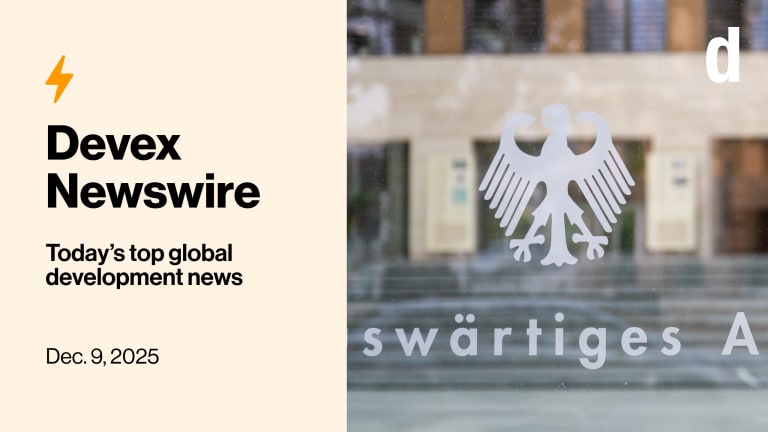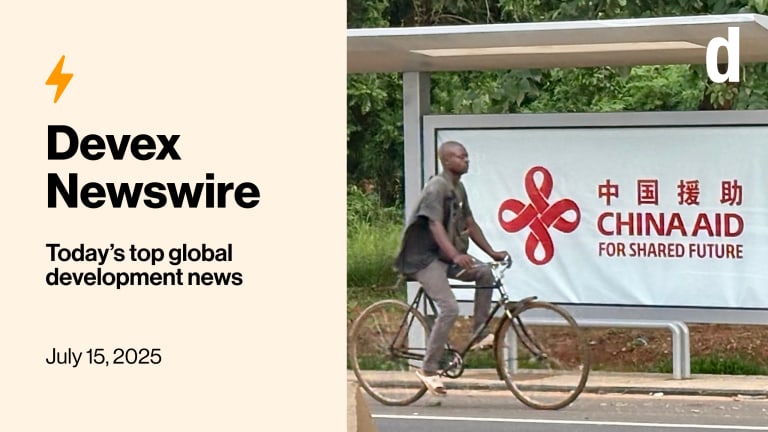BRUSSELS — There is something bugging the United Nations Office for the Coordination of Humanitarian Affairs about media coverage of pledging conferences, where donors put up money for humanitarian needs in crisis regions.
“You think we have a [fundraising] target and we really never have a target,” Marcy Vigoda, chief of OCHA’s partnership and resource mobilization branch, told Devex recently. “The U.N. coordinated interagency appeal is not the target because we know that fundraising will continue through the year. In addition to that … you have the Red Cross/Red Crescent appeals, you have [Médecins Sans Frontières] etc., who are meeting the same needs but are not part of that U.N. coordinated appeal.”
Conferences on Syria, the Democratic Republic of the Congo, and Yemen in April followed a familiar pattern: Donors gathered and pledged an amount generally well below the U.N. appeal, after which U.N. officials defended the outcomes as “a good start” and “very good progress.”
With OCHA preparing for another conference on the Lake Chad region in Berlin on Sept. 3-4, co-hosted with Nigeria, Norway, and Germany, Vigoda explained when and why the U.N. decides to hold a pledging conference, how much the organizers know in advance, why countries bother to show up, and that it’s not all about the money.








